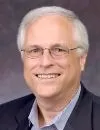Eleven years in the making, a new Education and Resiliency Center has opened at Fort George G. Meade in Maryland to offer an array of services for veterans and their families and to provide a new University of Maryland Global Campus (UMGC) office at the military facility.
UMGC’s seven-member staff at Fort Meade handles the university’s largest student enrollment of any military base worldwide. Each staff member manages a portfolio with as many as 1,900 students, among them active-duty and retired servicemembers, their families, Department of Defense civilian employees, private sector military contractors connected to the base, veterans living near it and employees of the National Security Agency based at Fort Meade.
The $5.1 million joint venture to convert Kuhn Hall into the Education and Resiliency Center brought together community, government and military resources to address pressures placed on service members, including those who were deployed to Afghanistan and Iraq.
“UMGC's commitment to our servicemembers, veterans and their families is at the core of our institution's history,” said John Thompson, UMGC director of In State Maryland Operations. “As Kuhn Hall opens its doors, so do the doors to education. Through our placement on base, we will continue our commitment to serve those who serve.
“Higher education, fused with the strategies to develop holistically healthy servicemembers, will ultimately produce a stronger force for the future,” Thompson added.
The Education and Resiliency Center is the brainchild of the Fort Meade Alliance and the Fort Meade Alliance Foundation, made up of private companies dedicated to improving the base, which is one of the main drivers of the local economy.
“We are excited to be in the new Kuhn Hall and to continue to assist our military and veteran community at Fort Meade,” said Khadijeh Sarvandani, who leads the UMGC team on the base as assistant director for In State Maryland Operations. “The staff here meets with a variety of students to help with their educational goals, and now we are able to offer even more classes and resources on base to help students with their UMGC journey.”
With so many military personnel and veterans returning from combat in Iraq and Afghanistan in need of mental health, education and personal counseling, the Fort Meade Alliance began pushing for a central hub that would bring together services previously scattered all over the base and the surrounding community.
“Kuhn Hall is more than a building. It's a philosophy,” Fort Meade Alliance Foundation President Deon Viergutz said during the center’s Nov. 17 ribbon-cutting ceremony. “It's a commitment, and it's a promise. It's a welcoming facility for all [that is] focused on the five pillars of resiliency: family, physical, spiritual and emotional health, with education serving as the underlying foundation.”
The Army recognizes the difficult psychological impact on veterans who have been fighting in the Middle East, said Yvette Bourcicot, acting assistant secretary of the Army for Manpower and Reserve Affairs. They return with “harmful behaviors” that need to be addressed early to keep the fighting force healthy and resilient, she said.
“We're shifting our mindset and resources from responding to harmful events after they've happened to finding ways to prevent them,” Bourcicot said. “To do that we must develop and institutionalize prevention-oriented approaches that will reduce the frequency of harmful behaviors, such as sexual harassment and assault, extremist activity, racism and domestic violence. And we absolutely must do everything we can to prevent suicide in the Army.”
She said servicemembers often are dealing with multiple issues and finding the right combination of resources to help can be daunting. Bourcicot described the new Education and Resiliency Center at Fort Meade as “fundamental to the success of our Army.”
Garrison Commander Col. Michael A. Sapp the new center promises both immediate and long-term impact.
“We foresee inside these walls, in this building, a marine will begin her journey toward a degree,” he said. “A newly enlisted sailor will learn how to make a meal in a mug. An Army couple will learn how to budget in light of their pending bundle of joy. And the military spouse will find a counselor when he needs it most.
“This facility will save lives and will make our entire community stronger,” he said.

Share This